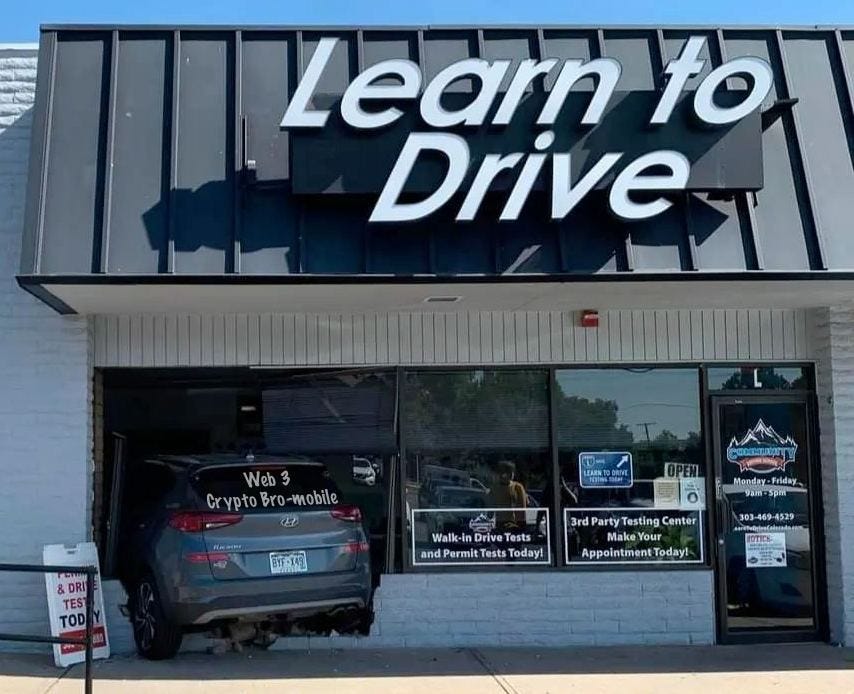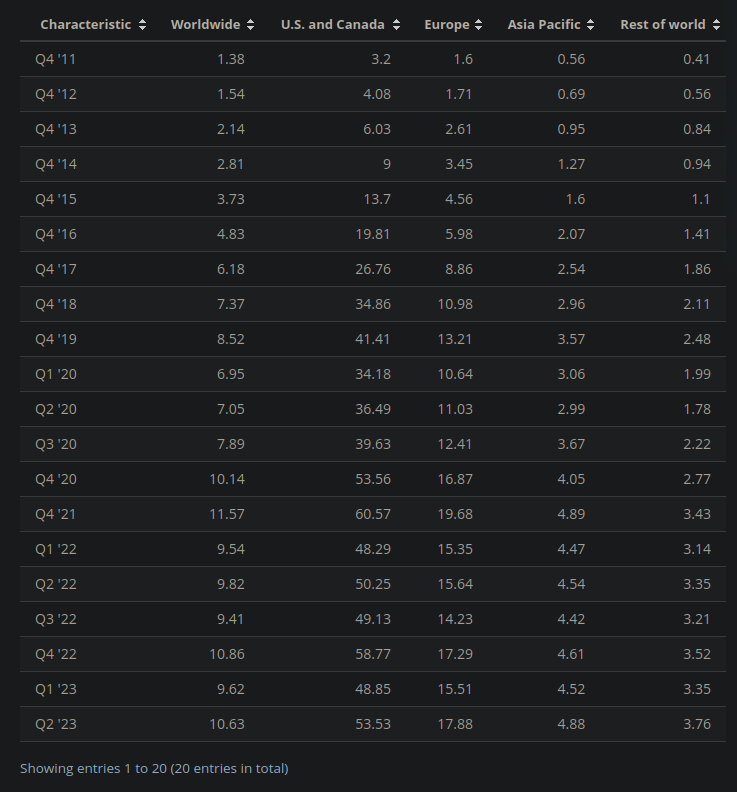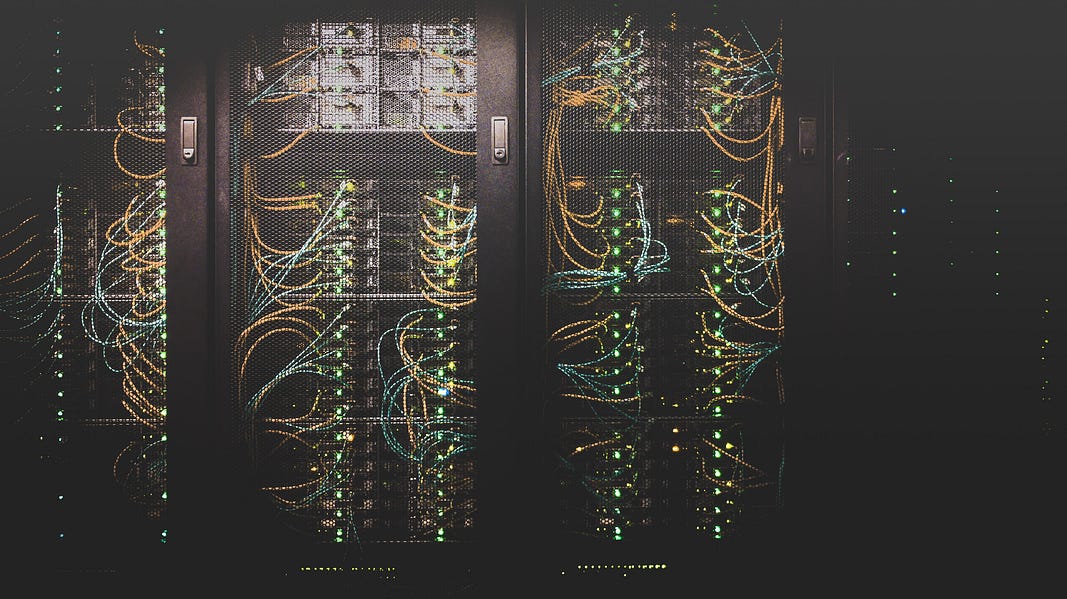
Or not…
The Internet of 2023 sucks.
Every site, every service, every entree and every destination on the modern Web of today is controlled by corporations. Blood and treasure is expended, our personal data and real money is hoovered up to feed bottomless C-suite salaries…
While the World Wide Web may be comprised of an endless cavalcade of corporate entities vying for ultimate control, there remains a much, much larger contingent that has yet to stand up and take it’s own power: we average peeps.
Yup. The rest of us. The rank and file, as it were. The NOT 1% of Americans who just want to get on with life minus all the drama and violence.
So, within this unpleasant and difficult context, I’d like to offer my thoughts on fixing our ailing Internet. Now, I’m not going to suggest my ideas can fix all our woes, but a better foundation for our public internet can go a long way towards healing the rifts dividing and disrupting all our lives. So, let’s kick this proverbial pig.
NOTE: I have no idea where I learned that pig-kicking axiom. Likely the years of my youth spent in East Tennessee. Lovely place, the Smokies :)
We need a perspective change.
In this first piece, I’d like to focus on a single factor of the overarching issues plaguing the internet in 2023; user retention. In other words, keeping eyeballs on “content.” Merely look to the overwhelming success of TikTok and Instagram to see that content length has gotten dramatically shorter and screen-on times have gone up.
At one point, reports in the mid ’20s indicated that, on average, Facebook earned ~$20 a year in ad-view revenue for each user. It turns out that was just for the US and Canada. When you look at the Worldwide averages, you can see that a few bucks a person can float an entire Capitalist Wonderland of exploitation. That’s the power of the individual dollar. Even Facebook knows how powerful the dollar is.

All amounts are in U.S. Dollars. All further information on this statistic can be found at Statista. So what if I use Dark Mode. It’s better on the eyes. Fight me.
This is the kind of awareness I want to see leveraged by everyone, and I will explain how… minus the exploitation, of course :) First, however, lets go over some basic principles with a few goals I have for a new Web:
- It must be affordable.
- It must be secure.
- It must be discoverable.
- It must be open source.
- It must benefit humanity with as few restrictions to access as possible.
Affordability is critical, and the lowest common denominator is the US $1. In order to facilitate masses of Internet users spending $1 to subscribe to a service or creative we’ll need to do an end-run around big chunks of the corporate-controlled web with a simple, uncomplicated $1 micro-economy that naturally removes the need for advertising as a source of funding.
Right now, web services are built around the classic database concept of One-To-Many.* Millions of viewers go to a single website to watch videos on YouTube. That’s how database servers work. It’s a simple idea.
* While this is not technically true, it’s more than accurate enough for our purposes. Most sizable web services (i.e., Google, Amazon, etc.) are distributed across servers using technologies like load balancing to redirect incoming users to physical servers that have less traffic.

Most web servers today aren’t one machine in a rack. These four full racks could very easily be one website. Photo by Taylor Vick on Unsplash
According to current YouTube corporate dogma, the costs to operate dictate that they sell ad space and charge Premium users $21+ a month, filtering fractions of your premium to the creators you actually do watch, after it has taken it’s cut of the advertising and membership revenue, of course. Google, Meta, Amazon and others have an effective thumb on the scales, but that advantage can be eliminated, or at least blunted.
And if that wasn’t enough, we know all too well that most online services collect and sell our personal data to anyone with coin. They extract value from people who cannot or will not pay. Many creators are forced to augment their YouTube profit sharing revenue by selling in-line sponsorships which all users have to consume, even the Premium tier. And if we skip the ads, the creators get a lot less, at least that’s what I understand. This can be fixed.
A universally accessible micro-economy
Marques Brownlee is an insanely popular YouTube creator. You might also know him by his channel, MKBHD, which has, as of late September 2023, 17.6 million subscribers. One of his more recent videos about the new iPhone 15 has almost as many views as he has subscribers, an astounding 13 million.
Wow! That’s a lot of views!!
Now, I know nothing about how much money MKBHD makes from YouTube revenue sharing, but with YouTube taking around 30% of everything, it would suggest that there’s a lot Marques is missing out on. And yes, that is sarcasm.
For the fix, let’s look in the parts bin for the required technologies. I’ll explain more about this a bit later. For now, here’s what Marques would need to get started:
- A media-specific Content Delivery Network (CDN) account with space enough for video uploads. KeyCDN appears to be the quickest to get into, but you should research options.
- A web server, likely through a hosting service. Check out Linode for reasonable rates on capable Linux-based services.
- A Ko-Fi.com account configured with a $1 a month subscription and nothing else.
- A good website designer.
Here’s one critical point: We have everything we need to make this happen now. Allow me to repeat that more emphatically:
WE HAVE EVERYTHING WE NEED TO MAKE THIS HAPPEN NOW! TODAY!
This isn’t theory. It’s not a complex new framework that depends on massive, inter-agency cooperation. We don’t need to develop any new technologies. The only thing that must be developed is familiarity with the concept itself.
So, what does this look like?
I would hope that it would look like a calm, orderly experience, but that will likely come after a few years of maturation. Let’s say, however, that Marques sets this up and tries it out.
First, I imagine he’d post a video to YouTube announcing that he is opening a new streaming service outside of YouTube and invite his subscribers to join for $1 a month. Not as a promotional rate, but as the actual rate. Next, he’d upload ad-free/sponsor-free versions of his latest YouTube videos to the CDN and post them to his new single-channel streamer.
If 10% of his subscribers take him up on his offer, he’d be pulling in $1.7 million a month before expenses. And yes, this means that the service would not be free, but it’s only a dollar a month and subscribers don’t have to suffer any advertising terrorism or other corporate interference.
It represents a kind of freedom. A very narrowly defined freedom, but in this America now, that would be very welcoming to me.
Where can this go?
That is a valid question to which I do not have an answer. For YouTube, I think all creators with more than five million subscribers could easily do this independently, but an affordable infrastructure offering would need to be available for smaller creators. If a sufficiently large number of influential creators make such a move, CDNs other than KeyCDN will adapt to accommodate, I’m sure.
Local newsrooms, radio stations, independent coffee shops, music shops and record stores, small farms and farmer’s markets, kids sports teams and teacher supplies, and other resources threatened by corporate consolidation could be buoyed by some additional support that doesn’t hurt the individual citizens wallet. Could you spare $5 a month to help your community float five small businesses against the rising tide of corporate mergers and retail assassinations?
It’s true. The smaller the community, the fewer the people to give $1 a month. I don’t have a fix for that, yet, but I’m brewing some lateral ideas. If you already have, leave a comment for posterity :) It’s worthless to make things better for most people and not all, and small-town America is just as important to this country as any big city. There’s also no reason why a town couldn’t take $1 donations.
I believe that this can be a powerful tool to return some power back to the people. It won’t fix everything, but we need to keep working towards real, viable, accessible solutions. There’s nothing wrong with fixing one thing at a time, but there are some additional notes I should make before offering my summary:
- Ko-Fi is a decent solution for now, but I suspect it would be far smarter to develop an open source solution for moving dollars around.
- One of the strengths of YouTube will be lost; discoverability. I have a fix for that coming in another piece, but it’s not yet ready. My smooth brain takes longer, so be patient. Any solution, however, will necessarily involve a real fix for the search engine problem.
- I believe that for this to work everything must be open source. There can be zero direct corporate influence on the operations of those who manage to escape their greedy clutches. It is imperative that only open source resources are leveraged. This would be a project of, by, and for the people.
That summary I promised…
I would think that it has become crystal clear that things need to be done to save the Internet, our supposed shared resource, for those who use it from those who see it solely as another space to be plundered savagely.
That’s gonna take a lot of work, but we can start small.
For my next piece, I’m going to tackle the next bullet point; security. The issue has vexed me for years, but I’m quite sure I have a new way to approach the problem that has utterly fascinated me.
Thanks for reading :)